In February 2014 I went two weeks in Nairobi, to teach animation to AMREF social workers. They have been doing beautiful creative activities with street children. This teaching work gave me the chance to get in contact with a part of the world we are not much informed about.
I bring in my heart many people and their beauty, but also the children laughter, the powerful nature, the marvellous fruit and the local music. Unfortunately Nairobi suffers from huge social issues, that are the themes of many of these pictures. Nairobi, so called “Nairobbery”, is one of the most dangerous city in the world, expecially for white people. So, I was warmly suggested not to walk alone and not to show any DSLR camera. For this reasons a lot of these pictures were shot with non-professional devices; some photoes were taken from the window of the bus. I apologize for the quality, but these images are not here to show how good is the photographer.
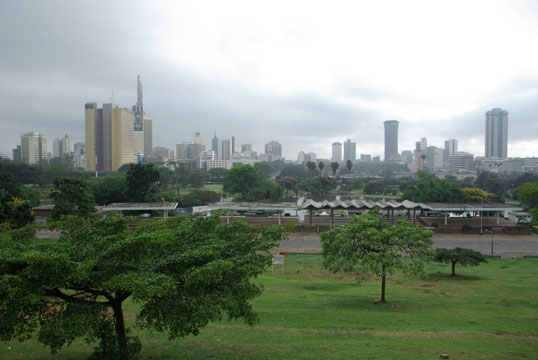
Nairobi centre: all these buildings are offices own by the State. It could be a good methaphor of the huge corruption, which is ranked 136/177 in the world.
*******
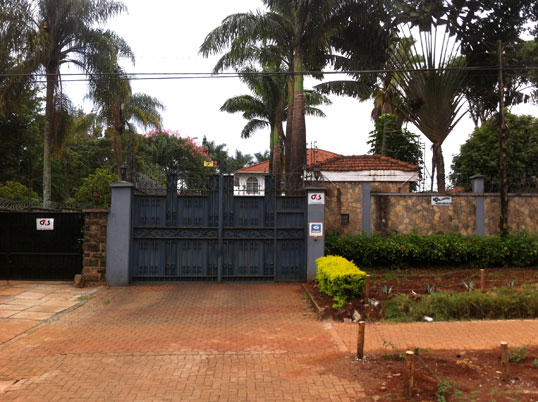
Kenya has many resources (nature above all), but they are controlled by few very rich people. Capitalism was installed on a tribal culture, creating disasters. I was told Kenyan people are more egotist than their “cousins” in Tanzania. Wealthy local people can ingnore or even forget the poor side of this country.
*******
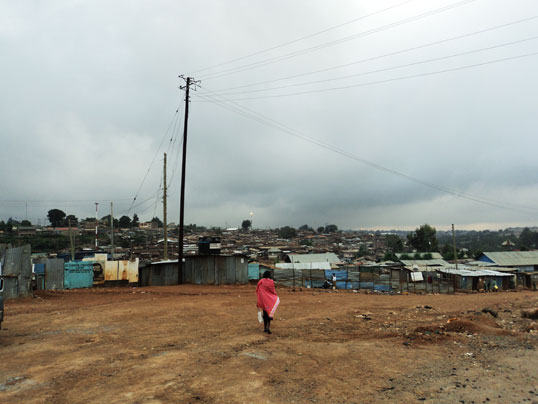
More than 50% of Nairobi population lives in slums, which cover just the 5% of the urbanized land. The government does not recognize slums, otherwise it would have to care about them.
*******
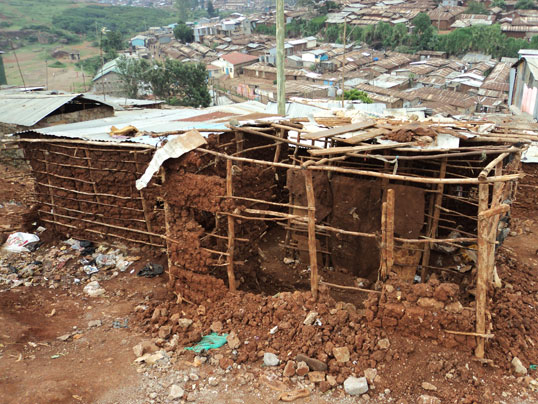
A hat in Kibera slum is being built. Easy to immagine what happens during the rain season.
*******
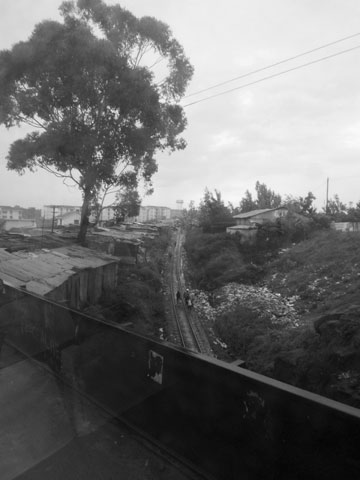
Poverty, alcoholism, deseases and drugs are very common in the slums.
*******
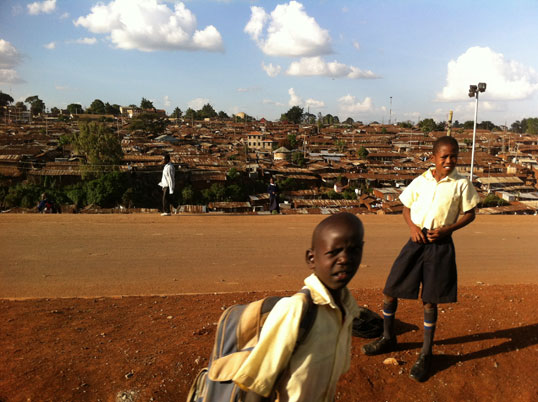
Watching the big bypass being built with a Chinese loan in front of Kibera, I came up with two questions: 1) Who will pay the loan? 2) Who has won the tender for the concrete supply? I give you a clue: one of the anwers is “the son of the president”.
*******
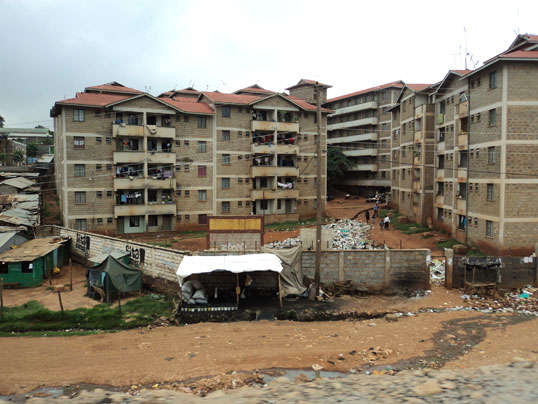
Some normal building (with dump view) were set next to Kibera slum; despite the cheap prices, many family had to come back to slums (which are not for free anyway). I was surprised to hear that many Kenyan people, despite poverty, are not used to take care of the things they own, even when they have the chance to live in good houses, which get quickly dirt and spoiled.
*******
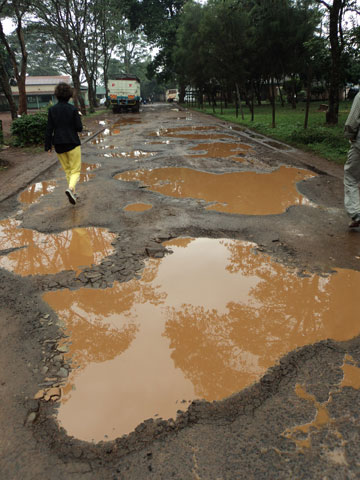
Basic needs first.
*******
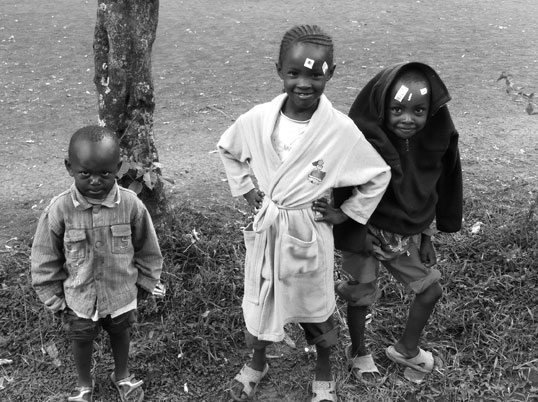
Many children don’t go to school because they can not afford school uniforms. AMREF and other organizations help them.
*******
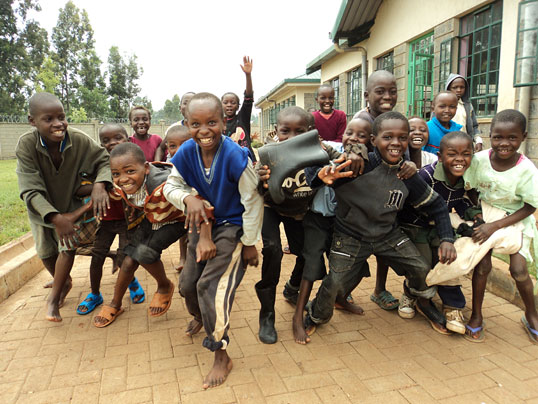
Street children are called chokora (trash): they have quitted family and school, they may sniff glue or petrol, they can be sodomized by a boss, who may use them to traffic guns or doing other amazing jobs. As many people, chokora can earn few coins collecting plastic or other matherials from dumps. The kids in this picture are not yet street children, but they could become such. Luckily, in some people’s dictionaries chokora is a missing word.
*******
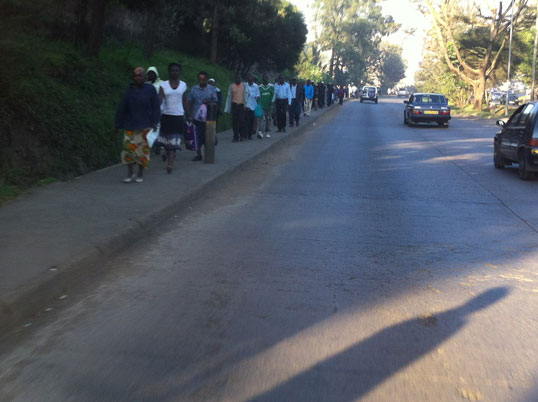
A long procession of commuters walks every day from for one or two hours, from the slums to the industrial district. As unemployment rate is about 60%, workers are extremely expoilted by companies. Payments are not always guaranteed. Nairobi wakes up at 6 a.m., many workers at 4 a.m, if the own an alarm clock. A normal worker can earn about 250 $ per month. Prices have increased a lot in these years. It’s getting harder.
*******
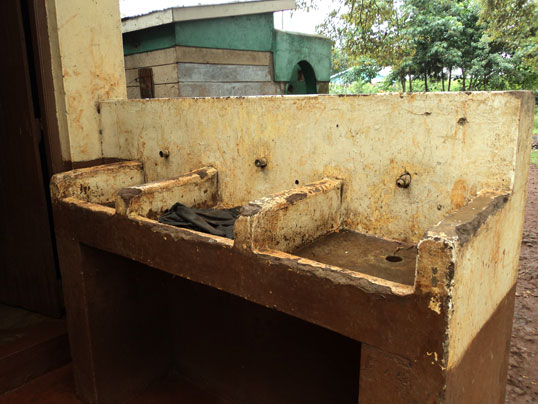
Stolen taps.
*******
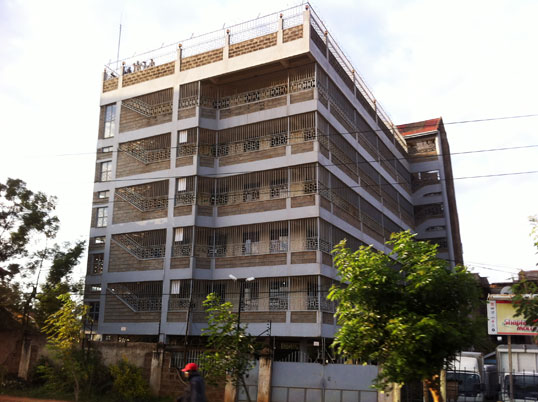
Every normal house is protected by 2m high brick walls, with barbed wire and/or under power wires and watchman (if the owner is enough rich). Lovely gratings adorn every windows up to highest floors. And why not balconies, just in case of a nairobbery.
*******
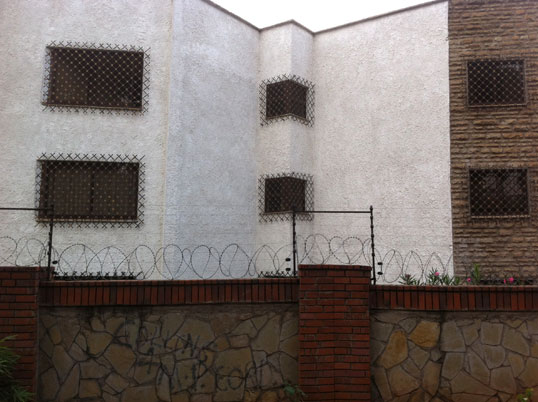
Safe home cage.
*******
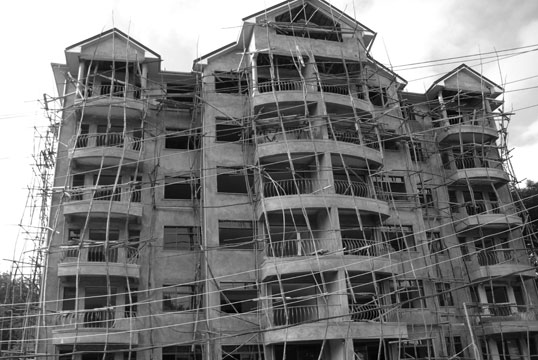
Nairobi population is increasing too fast. But, keep calm, politicians are facing the problem: this scaffolding in a first solution.
*******
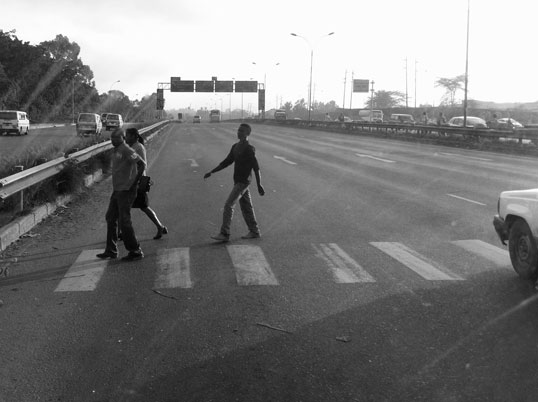
And this a the second one.
*******
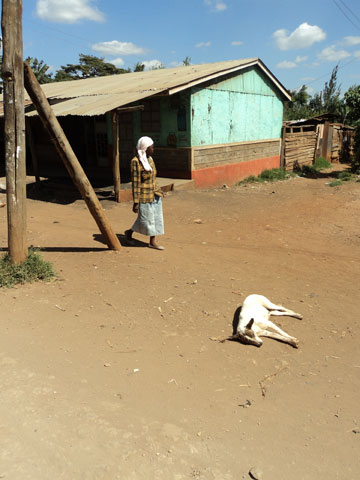
Expecially in the countryside belonging to a tribe does matter. It is not that important in Nairobi city. But politicians, to get votes, push the many tribes one against the others, as if they were football supporters. Divide et impera (divide and rule).
*******
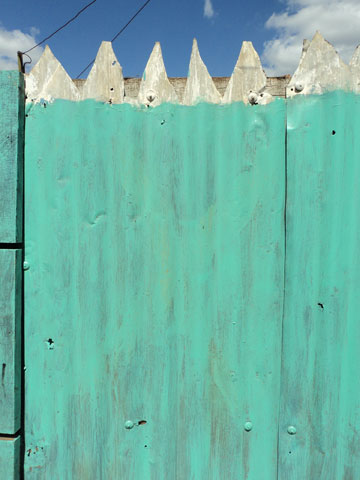
Maybe colors are the ways we choose to improve the world.
*******
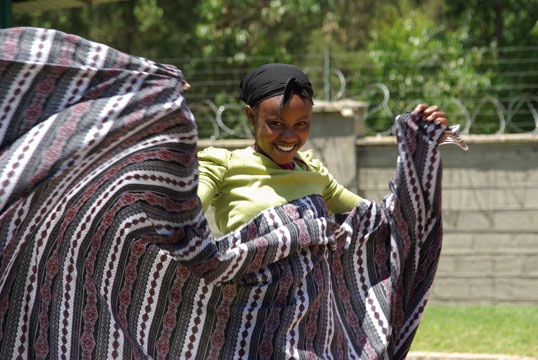
Exept for some faces distorted by suffering, men, women, elderly people and of course children are so beautiful to my eyes. Is it because black skin is exotic to me? Well, while bringing me through a market area, a bus driver (a truly Kenyan guy) noticed two Sudanese girls on the road and he revealed to me: “Kenyan girls are beautiful, but Sudanese…Wow! They are tall! They are slim! And they are BLACK!”
*******
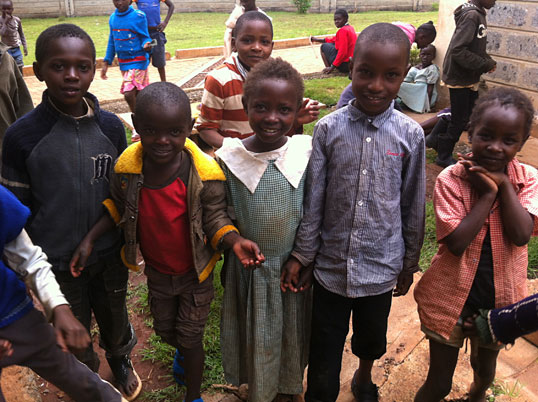
Children used to call me musungu, which means I am the white stranger. “What is it? On your arm”, they ask. “It’s hair”, I reply. “Can we touch it?” they continue surprised. It’s fun touching my arms, and then my head. “Wow! You hair is so soft!” Well, during those two weeks in Kenya, I felt like an ugly furry pig surrounded by beautiful coffee skinned creatures. But not so ugly that day.
*******
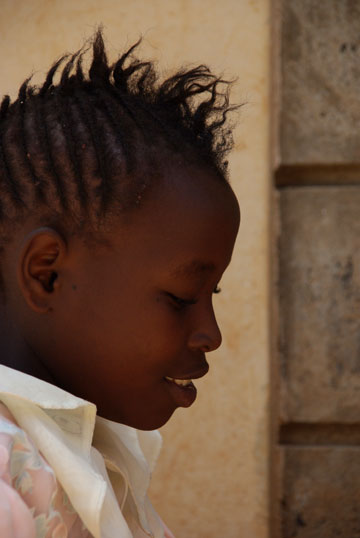
Speaking of skin and hair…
*******
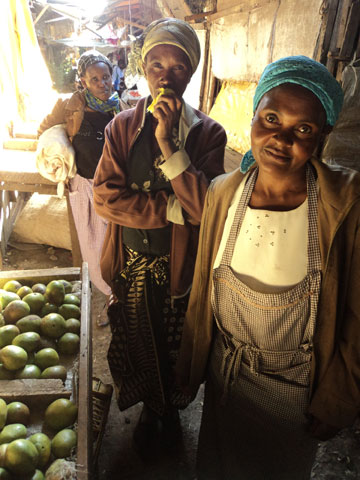
The ladies who gathered those original unforgettable mangos. What a deep delicate taste, with so many nuances!
*******
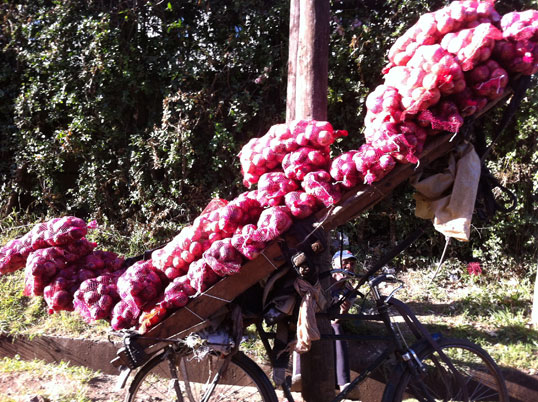
Sometimes we have much more resources than we expect.
*******
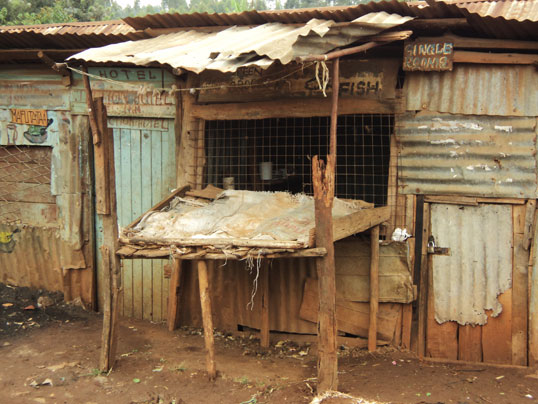
It was surprising to discover that in slums you can find many things you expect from a normal district: shops, workshops, beauty centers, social services and of course hotels! Now I feel stupid for my surprise.
*******
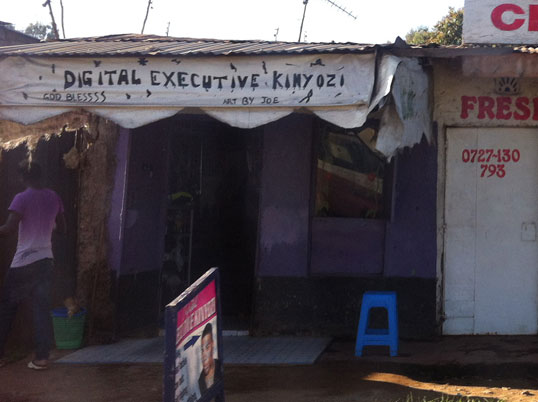
It was fun to me reading the many ways shop signs try to impress customers. Can somebody explain me what the hell is a digital executive barber?
*******
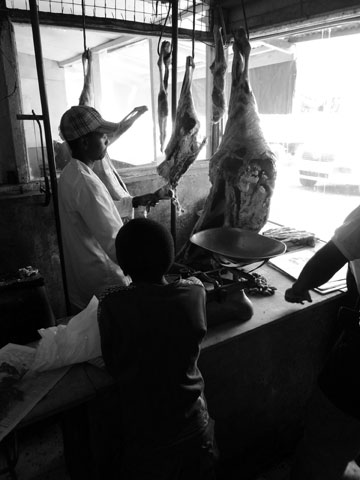
A restaurant on the road at Kawangware market. The meat was tasted and tested by flies, first. Then grilled and served on a cutting board, with salt. No cutlery, but a perfect service to wash your hands before and after the meal. Nice experience.
*******
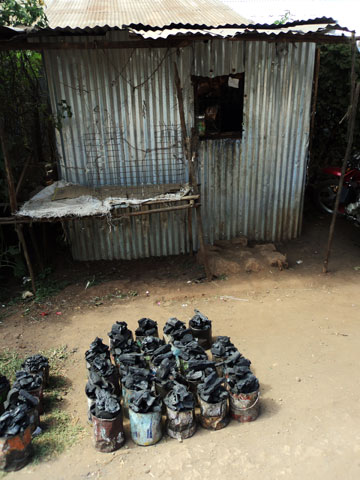
After the battles of Nobel Peace Prize for Wangari Maathai, cutting trees is basically forbidden, and this coal illegal, like many other popular things.
*******
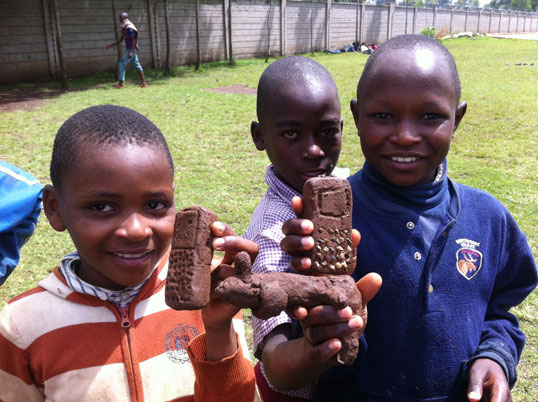
Gun and phones for children. Smart and safe, both.
*******
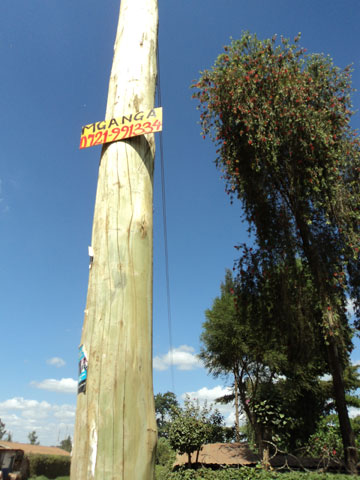
There are churches at every corner. Everybody is free to found a new sect and convince many poor people they would save their soul or solve their problems in change of donations. And there are many mganga, which doctors. Better than nothing, but are they all capable and honest?
*******
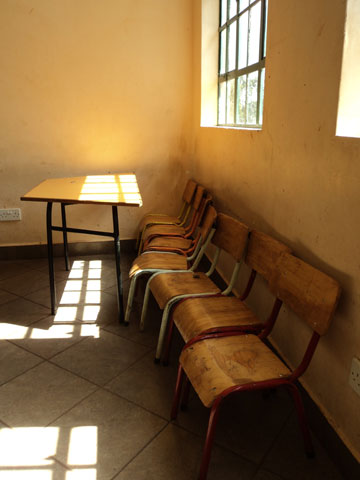
Hopes for Kenya depend on education. Big classes, along with a traditional education system that don’t encourage analysis and free thought, do not help. But there are pressures for a change, starting from the awareness about children rights.
*******
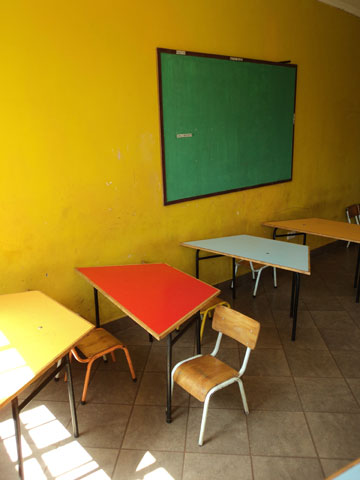
Gay people are not welcome in Kenya. Homosexuality is not a crime (like it is in Uganda), but homophobia is very widespread.
*******
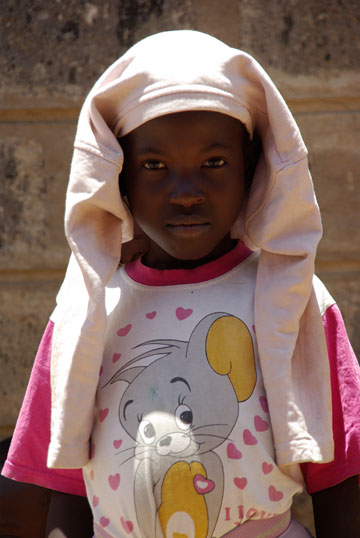
*******
back to photography menu